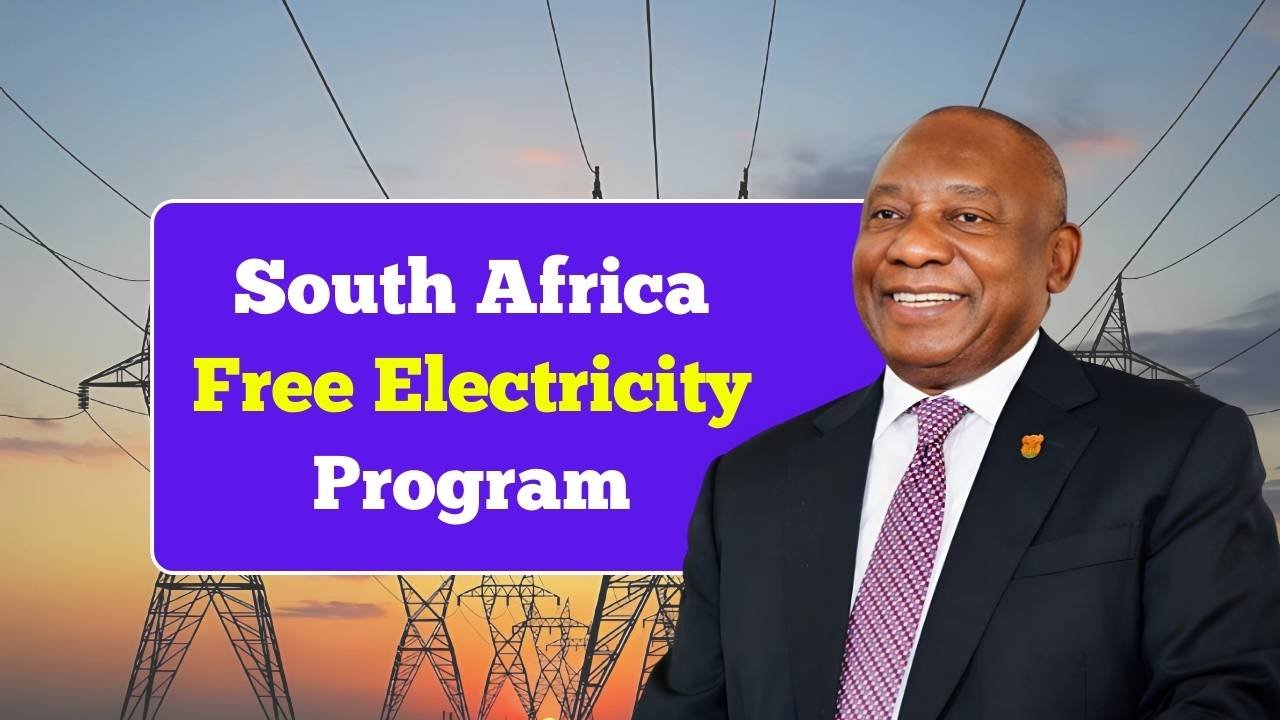Join on WhatsApp
Get the latest updates directly on WhatsApp – motivation, news & more!
In South Africa, access to affordable energy has long been a challenge for many households. To ease this burden, the government introduced the Free Basic Electricity (FBE) program. This initiative provides a limited number of electricity units each month to qualifying households, ensuring that even the most vulnerable citizens can power their homes for essential needs such as lighting, cooking, and heating water.
The year 2025 marks a renewed focus on the program, as municipalities across the country expand registration campaigns and promote online applications to make the process easier and more accessible. For many families, these free units can mean the difference between spending scarce income on electricity or on other essentials such as food and education.
Why the Program Exists
The Free Basic Electricity initiative is rooted in South Africa’s constitutional commitment to improving the quality of life for all citizens. Electricity is more than just a convenience; it is a basic necessity for health, safety, and dignity. By offering limited free electricity, the government helps households reduce the financial strain of rising utility costs.
The program also supports social development goals by ensuring that even low-income households can maintain access to modern energy, reducing dependence on unsafe alternatives such as paraffin or candles.
Who Qualifies for Free Electricity
Not everyone automatically qualifies for the program. Municipalities set their own rules, but the general requirements are fairly similar across the country.
Most often, households must be classified as indigent, which means they fall below a certain income level. For example, in Johannesburg, families earning less than R7,500 per month can apply. Applicants must also be South African citizens or permanent residents and must legally occupy the property where they are requesting the benefit.
Proof of residence is essential, and this can include a utility bill, lease agreement, or municipal account. In addition, applicants usually need to provide proof of income, such as a payslip, a SASSA grant letter, or an affidavit if unemployed. Identification documents are always required, and households may need to show the electricity meter number connected to their property.
What Beneficiaries Receive
Once approved, households receive a monthly allocation of free electricity units. The standard amount is often 50 kWh per month, though this can vary depending on the municipality. While this may not be enough to power high-consumption appliances, it is sufficient for essential daily needs such as lights, television, charging phones, and limited cooking.
In some areas, additional relief is provided in the form of reduced municipal service charges, further lowering the cost of living for struggling families. The support may not eliminate all expenses, but it provides an important safety net.
Documents You Need to Apply
Before applying, it is a good idea to gather all necessary documents to avoid delays. Most municipalities will ask for the following:
- A valid South African ID for the applicant and household members
- Proof of residence such as a lease agreement, title deed, or utility bill
- Income verification documents including payslips, grant letters, or affidavits
- Electricity meter number or account number
- Contact details such as a phone number or email address
Having these ready before starting the online application process will make the steps faster and smoother.
How to Apply Online Step by Step
Applying for the Free Basic Electricity program has become easier with digital platforms. While the exact process can vary slightly between municipalities, the steps generally follow the same pattern.
Step 1: Visit Your Municipality’s Website
Start by going to the official website of your local municipality. Look for sections labeled Free Basic Electricity, Indigent Services, or Municipal Support Programs. Some municipalities also post application links on their official social media pages.
Step 2: Review the Eligibility Criteria
Before starting your application, carefully read through the eligibility rules. Make sure you meet the income threshold and that your household qualifies. Municipal websites usually outline these details clearly.
Step 3: Access and Complete the Application Form
If your municipality offers an online form, fill it out directly on the website. Some may provide a downloadable PDF that you can complete and upload. The form will request your personal details, proof of income, and electricity account or meter number.
Step 4: Upload the Required Documents
Scan or take clear photos of your documents, such as your ID, proof of address, and income verification. Upload these to the portal as part of your application. Make sure the files are legible, as unclear documents can cause delays.
Step 5: Submit the Application
Once everything is filled in and attached, submit your application online. Some municipalities may send a confirmation email or SMS acknowledging receipt.
Step 6: Wait for Verification
Your municipality will review the application and verify the information provided. This step may take a few weeks, depending on the number of applicants. During this period, officials may contact you if additional information is required.
Step 7: Receive Your Free Electricity Allocation
If your application is approved, you will be registered for the Free Basic Electricity program. Households with prepaid meters may receive a token each month via SMS or vendor systems, while postpaid users may see an automatic credit on their account.
Differences Between Municipalities
It is important to note that not all municipalities handle the program in the same way. The number of free units, the application process, and the proof required can vary. For example, Johannesburg offers a direct indigent registration system, while Cape Town requires households to apply for rates relief programs that include free electricity. Always check the rules in your area before applying.
Tips for a Successful Application
To avoid problems, make sure that your documents are up to date and easy to read. Keep copies of everything you submit in case you need to reapply or follow up. If you are unemployed, get an affidavit from your local police station confirming your status.
Do not wait until the deadline to apply. Many municipalities set specific registration periods, and missing them could delay your benefits for months. If you are unsure about any step, contact your ward councillor or visit a customer service centre for assistance.
Conclusion
The South Africa Free Electricity Program 2025 is a valuable support system for low-income households. By providing free basic electricity, the government ensures that vulnerable families can meet their essential energy needs without facing additional financial strain.
Applying online makes the process faster and more convenient, but success depends on careful preparation and attention to detail. With the right documents in hand and a clear understanding of the requirements, households can benefit from this program and gain much-needed relief in their monthly expenses.


